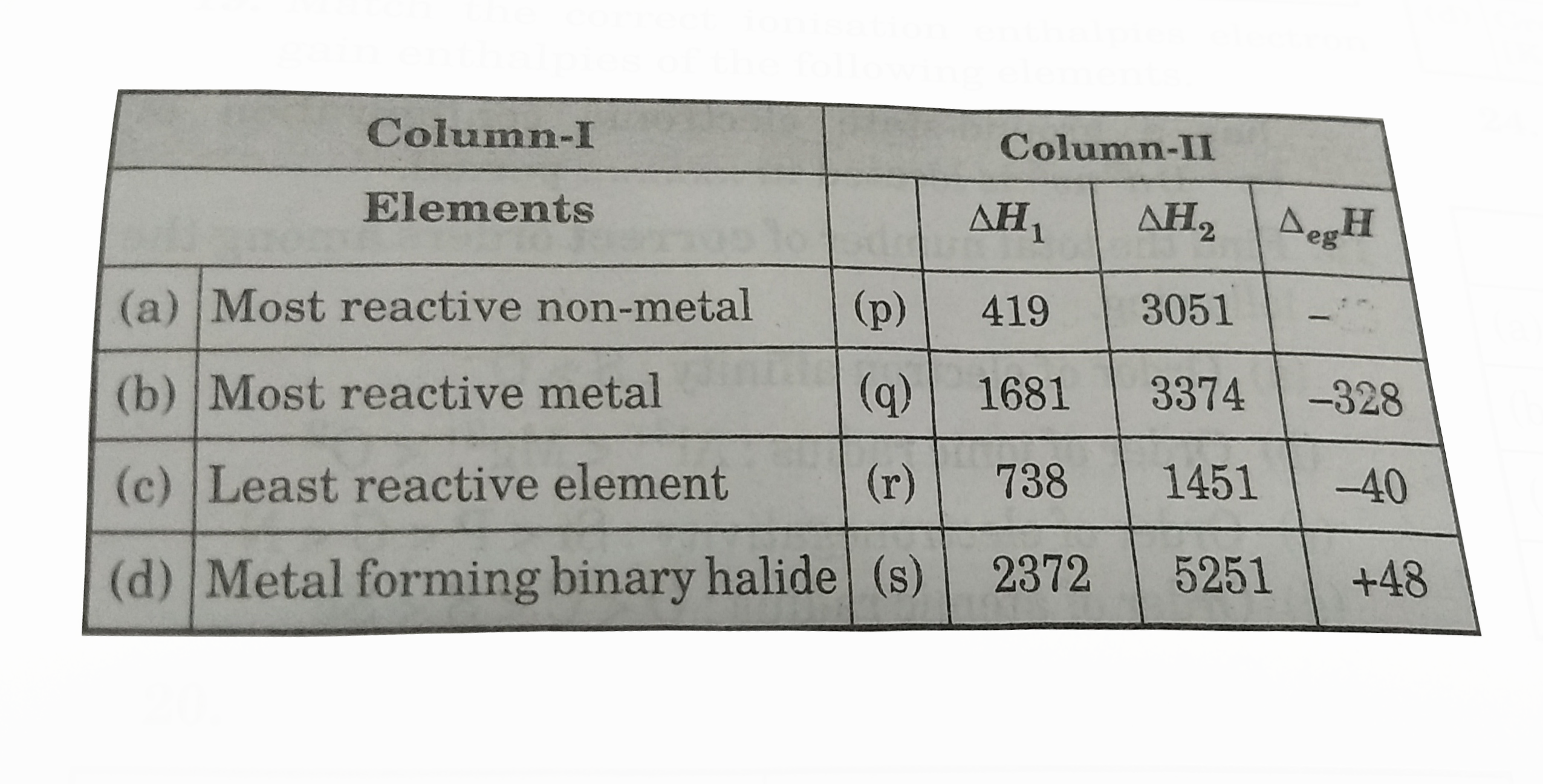What is the significance of the terms-'isolated gaseous atom' and 'ground state' while defining the ionisation enthalpy and electron gain enthalpy?
Hint: Requirements for comparison purposes.
Ionization enthalpy is the energy required to remove an electron from an isolated gaseous atom in its ground state. Although the atoms are widely separated in the gaseous state, there are some amounts of attractive forces among the atoms. To determine the ionization enthalpy, it is impossible to isolate a single atom. But, the force of attraction can be further reduced by lowering the pressure. For this reason, the term ‘isolated gaseous atom’ is used in the definition of ionization enthalpy.
Ground state of an atom refers to the most stable state of an atom. If an isolated gaseous atom is in its ground state, then less amount energy would be required to remove an electron from it. Therefore, for comparison purposes, ionization enthalpy and electron gain enthalpy must be determined for an ‘isolated gaseous atom’ and its ‘ground state’.
Topper's Solved these Questions
- CLASSIFICATION OF ELEMENTS AND PERIODICITY IN PROPERTIESBOOK - NCERTCHAPTER - CLASSIFICATION OF ELEMENTS AND PERIODICITY IN PROPERTIESEXERCISE - EXERCISE
40 Videos
- CHEMICAL BONDING AND MOLECULAR STRUCTUREBOOK - NCERTCHAPTER - CHEMICAL BONDING AND MOLECULAR STRUCTUREEXERCISE - EXERCISE
40 Videos
- ENVIRONMENTAL CHEMISTRYBOOK - NCERTCHAPTER - ENVIRONMENTAL CHEMISTRYEXERCISE - EXERCISE
20 Videos
Similar Questions
What is the significance of the terms-'isolated gaseous atom' and 'ground state' while difining the ionisation enthalpy and electron gain enthalpy?
Hint: Requirements for comparison puroses.
View SolutionWhat is the significance of the terms-'isolated gaseous atom' and 'ground state' while defining the ionisation enthalpy and electron gain enthalpy?
Hint: Requirements for comparison purposes.
View Solution
Knowledge Check
Which of the following atom has towest negative electron gain enthalpy?
AOBSCSeDTeWhich of the following gaseous atoms has the highest value of ionisation enthalpy?
APBSiCMgDAl
Explain the terms ionization enthalpy and electron gain enthalpy.
View SolutionWhat do you understand by the terms
(i) Ionization enthalpy
(ii) Electron gain enthalpy?
View SolutionMatch the correct ionisation enthalpies and electron gain enthalpies of the following elements.

View SolutionMatch the correct ionisation enthalpies electron gain enthalpies of the following elements.

View SolutionIn terms of ionization enthalpy and electron gain enthaply , what type of atoms combine to form an
ionic compound ?
View SolutionWhat is the electron gain enthalpy for noble gases?
View Solution
